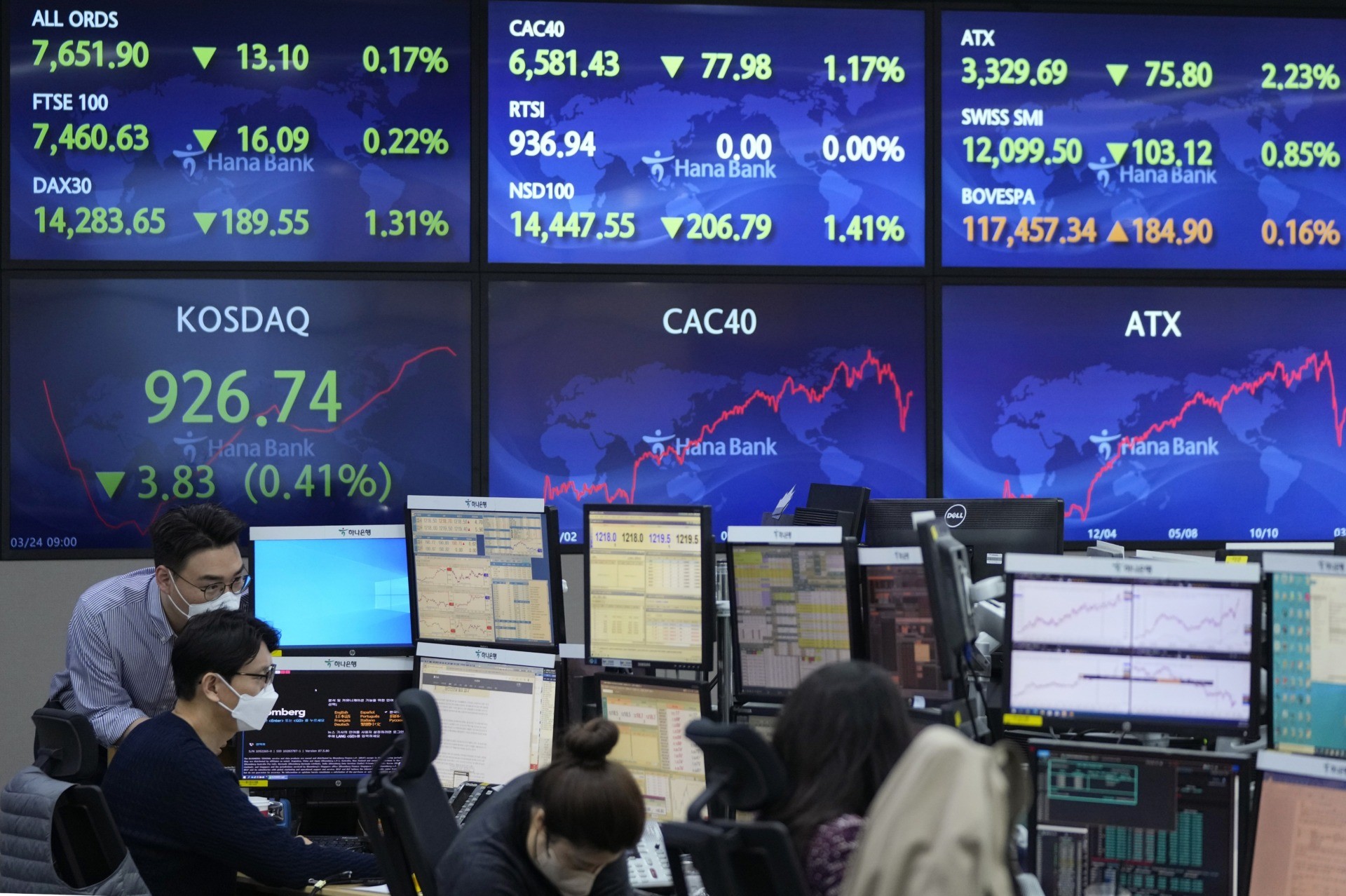
Asian shares declined Thursday following a Wall Street retreat, with concerns over excess oil supply dampening investor sentiment. Tokyo and Hong Kong benchmarks dropped over 1%, while the S&P 500 recorded its third consecutive loss, down 0.4%. Benchmark U.S. crude fell around 4%, dropping below $70, as global demand concerns grew.
China reported a 0.5% year-on-year increase in exports for November, the first since April, while imports fell. China has faced challenges in foreign trade due to weak global demand, despite economic reopening after COVID-19 controls.
In the stock markets, Tokyo’s Nikkei 225 fell 1.7%, Hong Kong’s Hang Seng dropped 1%, and South Korea‘s Kospi edged 0.1% lower. Wall Street saw the Dow Jones fall 0.2%, with energy and tech stocks experiencing notable declines.
Learn how to trade stocks in bull and bear markets with Top Forex and CFD brokers
Travel-related companies benefited from falling crude prices, with Carnival rising 5.9%. Airline stocks also rose, with Delta Air Lines gaining 3.5%. British American Tobacco shares fell 8.4% after the company announced a non-cash hit of approximately £25 billion ($31.39 billion) due to the declining value of its U.S. cigarette brands.
Market speculation suggests the Federal Reserve may cut interest rates at its upcoming meeting. Reports on private job growth and increased productivity in the U.S. are influencing market expectations. Treasury yields were generally lower, with the 10-year yield at 4.17%, and the U.S. dollar weakened against the Japanese yen and the euro.
Subscribe for our newsletter
Get Forex brokers reviews, market insights, expert analytics and education material right into your inbox for free!